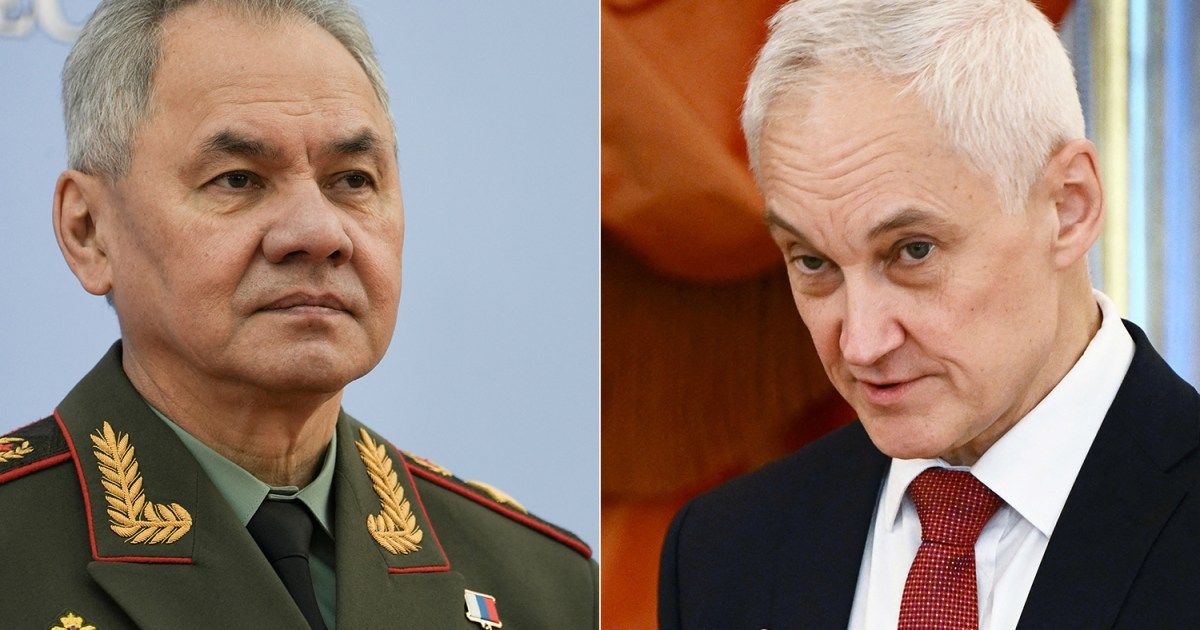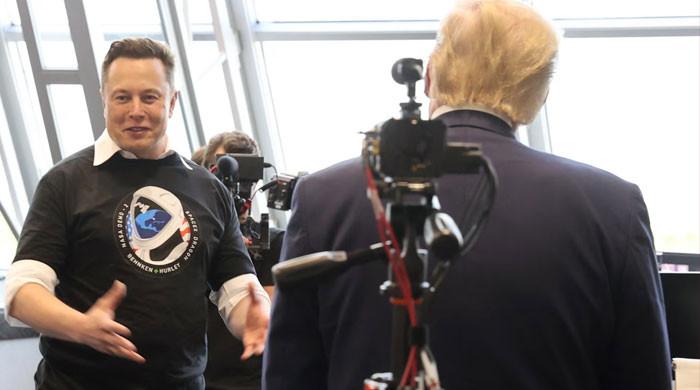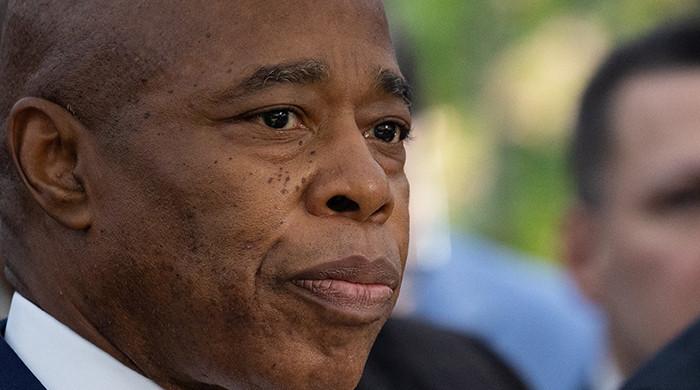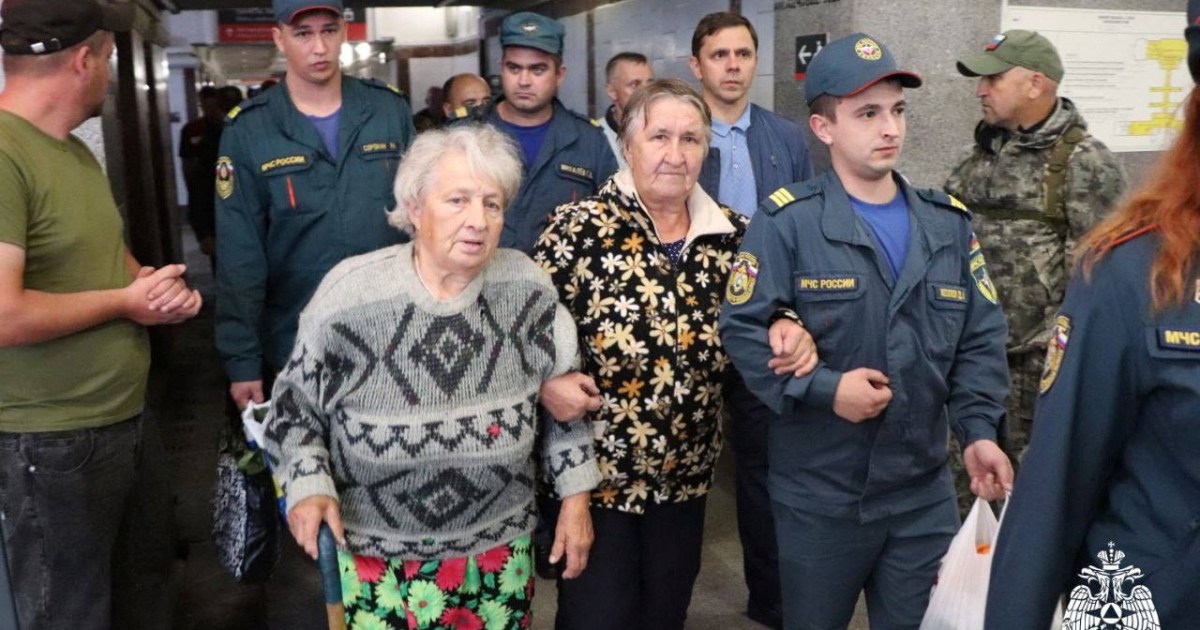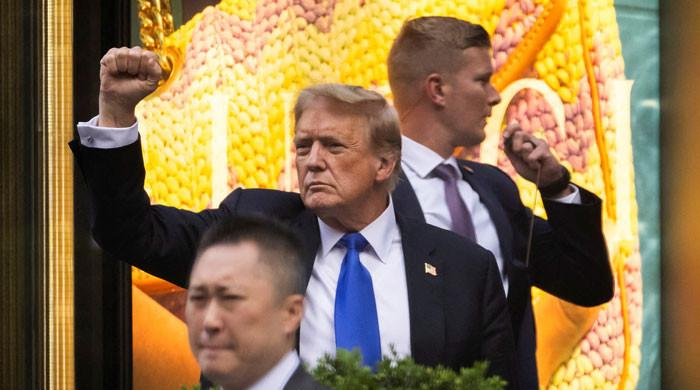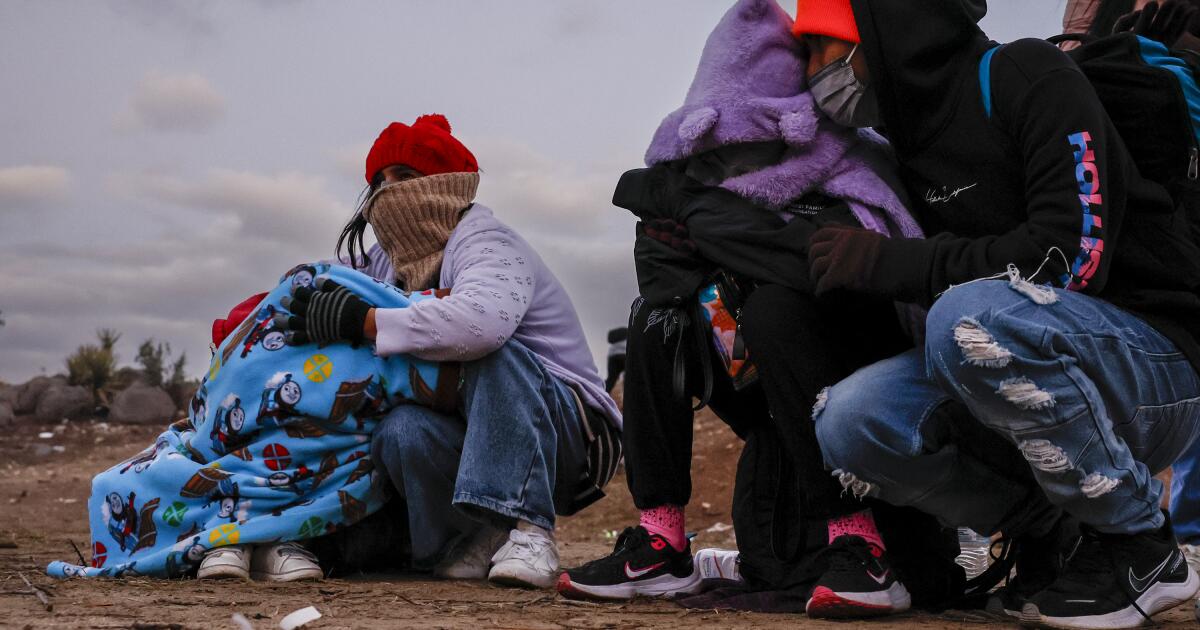In a major cabinet reshuffle, President Vladimir Putin will relieve Sergei Shoigu, Russia's Defense Minister for 12 years, and appoint him Secretary of the Security Council, a position previously held by Nikolai Patrushev since 2008.
The move has sparked speculation among Kremlin watchers, intrigued by what might have led to the surprise move and what it means for Shoigu, Patrushev and Andrei Belousov, the deputy prime minister and economist who will become Russia's new defense minister. .
Shoigu is known as a Putin loyalist, the pair have been photographed together on many manly fishing expeditions through the depths of Siberia, and have led the Russian armed forces during their invasion of Ukraine.
The Federation Council is expected to confirm Belousov's appointment this week.
“Today, the winner on the battlefield is the one who is most open to innovation, most open to implementation as quickly as possible,” Kremlin spokesman Dmitry Peskov told reporters. “It is natural that at the current stage the president has decided that the Ministry of Defense will be headed by a civilian.”
Observers said the shakeup is a sign that Russia has no plans to end its war against Ukraine, now in its third year.
“This indicates that the Kremlin is not looking for an exit from Ukraine, but once again its ability to withstand the conflict for as long as possible,” said Jeff Hawn, a doctoral candidate and visiting professor in the department of international history at the London School of Medicine. Economics. “Russia is very limited [on] how much they can scale up, due to economic deficiencies. However, they can maintain a certain level of war of attrition. And they probably expect to do it longer than Ukraine.”
Shoigu will soon take the position of deputy chairman of the Military-Industrial Commission. He will also head the Federal Service for Military-Technical Cooperation (FSVTS), which is responsible for military material transactions with other countries.
“With an economist taking over the Ministry of Defense and the former minister taking on a political and advisory role, technocrats are on the rise. However, the goal is not peace, but a more efficient war,” Mark Galeotti, author of several books on Putin and Russia, wrote in The Spectator. “As Putin holds on to the long term, with 'special military operation' now the central organizing principle of his regime, he knows that he needs technocrats to keep his war machine going.”
Putin's decree also removes the FSVTS from the Defense Ministry, leaving Shoigu responsible only to the president himself.
“In just over two years of the special military operation [in Ukraine]”However, Sergei Shoigu has surpassed the level of the defense minister in terms of his professional level,” Alexander Mikhailov of the Bureau of Political-Military Analysis, a Russian defense think tank, told state news agency TASS. highlighting Shoigu's level. of international knowledge and experience abroad.
Military expert Rob Lee wrote in
“The big loser in this confusion appears to be Patrushev, who was also one of the main decision-makers behind the invasion of Ukraine.”
It is not yet clear what Patrushev's new destiny will be.
However, Shoigu's new locations may not be the promotions they seem.
The shakeup comes less than a month after Deputy Defense Minister Timur Ivanov was arrested on bribery charges.
“The Security Council is becoming a repository for Putin's 'former' key figures, who cannot be let go, but there is no place to house them,” the political analyst and founder of R.Politik wrote on Telegram, Tatiana Stanovaya, referring to the recent turbulence in Shoigu's career.
Ivanov had a reputation for leading an opulent lifestyle and has been accused of pocketing funds intended for the reconstruction of the battle-ravaged Ukrainian city of Mariupol. Stanovaya also pointed to recent disputes with Rostec, state arms manufacturer Shoigu accused of slow work, and the fallout from last year's Wagner mutiny.
“Putin thereby makes it clear that the connection with the previous position will be maintained, that continuity is important, in his spirit,” Stanovaya continued. “But all this is more reminiscent of the desire to remove Shoigu from the game so as not to offend, with the highest honors. Not because he is a friend, but because he is safer for Putin himself. Just as it happened with Medvedev in January 2020. Apparently, this is how the Security Council justifies its own name: guaranteeing security against former heavyweights who have nowhere else to settle and cannot be expelled.”
Who is Andrei Belousov?
Like Shoigu, Belousov is also known as a Putin loyalist and an enthusiastic supporter of public spending, and is believed to have been behind the controversial Value Added Tax (VAT) increase in 2019.
“One of Putin's most extravagant appointments is that of Keynesian economist Belousov as defense minister,” said Andrei Kolesnikov, a fellow at the Carnegie Endowment for International Peace. “It is now important for Putin to ensure that the huge sums of money spent on the war are not stolen.”
“Belousov is not just an artist [of tasks]”He has his own vision in his head of how the Russian economy should work and he brings it to life as best he can,” a source close to the Kremlin told Russian independent news outlet The Bell.
Another added that, in 2014, he was the only economist close to Putin at the time who supported the annexation of Crimea.
“I have known Andrei Belousov, the new Russian Defense Minister, for many years,” said economist Konstantin Sonin in a lengthy post on X, adding that they do not now enjoy a relationship. “The new changes: Belousov instead of Shoigu in Defense [Ministry]Shoigu instead of Patrushev in the Security Council – is a perfect illustration of our theory of “degenerated autocracy.”
“Things are not going according to Putin's plan, but he will constantly rotate the same small group of loyalists. Putin has always feared bringing new people into positions of authority; even in the best of times, they must have been nobodies with no prospects of their own. Towards the end of his government, even more so.”

